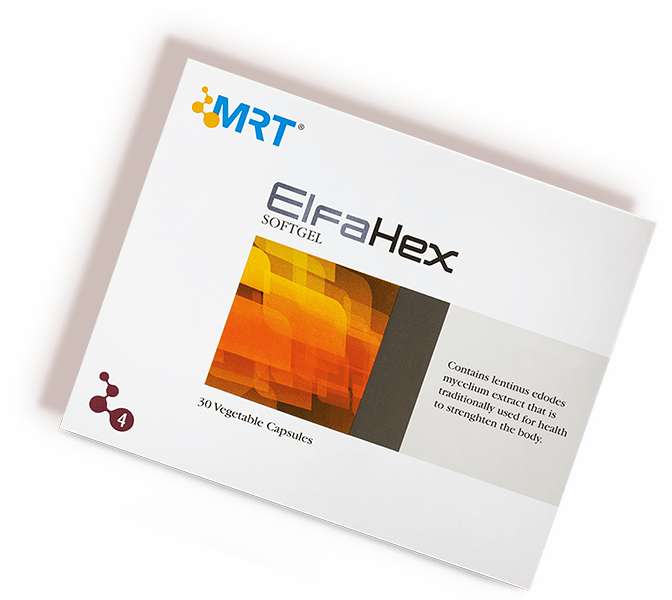Is it because of my DNA?
It’s a fact of life that all of us do occasionally get sick at some point in our lives. Especially when we don’t take care of ourselves, if we are sleep-deprived, don’t drink enough water, and don’t eat a balanced diet. Leading an unhealthy life tend to catch up with us and when our immune systems are down, many of us become susceptible to infections.
But why do some people get sick so often, even when they are eating healthy, exercising, and getting enough sleep? A research by King’s College in London revealed that nearly three quarters of immune traits are influenced by genes.
Variations in our genome affect our immune response to certain pathogens and our risk of autoimmune conditions. Possessing good immune response genes helps us maintain an effective immune system.
In a healthy body, an invading antigen (harmful bacteria, viruses, fungi and the likes) is met and destroyed by antibodies. With an immune system disorder, the body cannot produce effective antibodies to prevent infections and subsequently illnesses.
While an immune system disorder can be inherited genetically, it can also be a result of nutrient deficiency. A DNA test will help identify the actual cause and help us make an informed decision on the proactive steps we can adopt to boost our immune systems naturally.
In a healthy body, an invading antigen is met and destroyed by antibodies.
Genes of Interest and Recommendations
A DNA test will cover the genes of interest for our immune function; including IL-6, TNF, TLR4, HLA-DQA1, PON1, MTHFR, SH2B3 and FOXO3.
The IL-6 gene encodes interleukin 6 (IL-6) which is an inflammatory cytokine. It’s involved in the immune system, helping with bone metabolism, protection from bacterial infection as well as other physiological functions. Zinc deficiency has been shown to increase IL-6 production. Constant stress can also shut down the immune system and directly provoke long-term changes in pro-inflammatory production and increase IL-6.
The tumour necrosis factor (TNF-alpha) gene encodes a pro-inflammatory cytokine produced to kill bacteria, viruses and parasites. When produced in small amounts, it plays an important role to protect your cells. Light exercise is extremely effective and Vitamin D increases TNFa production in immune cells, so get out in the fresh air and sun if possible. However, moderation is key as producing TNFa frequently in larger amounts can cause your cells to become weakened and lose their functions. Over-exercising is one of the fastest ways to weaken your immune system, so take it easy!
Toll-like receptor 4 is a protein encoded by the TLR4 gene. It helps activate pro-inflammatory cytokine production as well as having a key role in the innate immune system, which represents the body’s first line of defence against infections.
HLA-DQA1 belongs to the HLA class II alpha chain paralogues, the protein encoded by this gene is one of two proteins that form the DQ heterodimer, which is essential for a functioning immune system. Variations in this gene cause inappropriate immune responses and are associated with conditions such as celiac disease, among others.
The Paraoxonase 1 (PON1) gene encodes an enzyme known as serum paraoxonase/arylesterase 1. PON1 has a contributing role to our innate immunity as it protects against bacterial infection. It is therefore an important gene when considering secondary infections from common respiratory tract infections.
Methylenetetrahydrofolate reductase is an enzyme encoded by the MTHFR gene. It is related to multiple conditions and is used in our other modes such as folate deficiency and B12 algorithms. DNA methylation can be impaired with certain variants within the MTHFR gene, which may lead to ill health and a poor operating immune system.

The SH2B adapter protein 3 is a protein encoded by the SH2B3 gene. It regulates signaling pathways for inflammation, cell migration and haematopoiesis. It’s also associated with autoimmune conditions due to its role in inflammation but is heavily studied for its association with vascular/blood ailments.
The Forkhead box O3 is a protein encoded by the FOXO3 gene. It’s associated with protection from oxidative stressors and, interestingly, has a variant associated with longevity; being overly apparent in those who live to 100.
A blueprint of our DNA is crucial in the process of identifying and eliminating genetic factors. Following which, we can then address how the immune system is impacted by multiple other factors such as pollution, exercise and fitness levels, body fat, age and most importantly, nutrition. Fortunately, we can supplement our daily diet with the vital nutrients our body requires to boost our immune response such as vitamin C and D, zinc and Omega 3.
Bovine Colostrum collected during the first calf milking, can strengthen our immune system and help our body fight disease-causing antigens. Elken ELG6 is a rich source of immunoglobulins containing more than 70 beneficial active ingredients including 31 types of immune factors, 9 types of growth factors and 37 types of other beneficial ingredients to help activate more than 50 processes in the body, ranging from immunity to regeneration and cell growth.


Mycelium Immuno Modulator Extract (MIME) that is extracted from the roots of the Basidiomycota “Super Mushroom” helps to regulate the immune system. Consuming Elken Elfahex which contains MIME, will stimulate our immune responses against infections and help us to recover faster.

